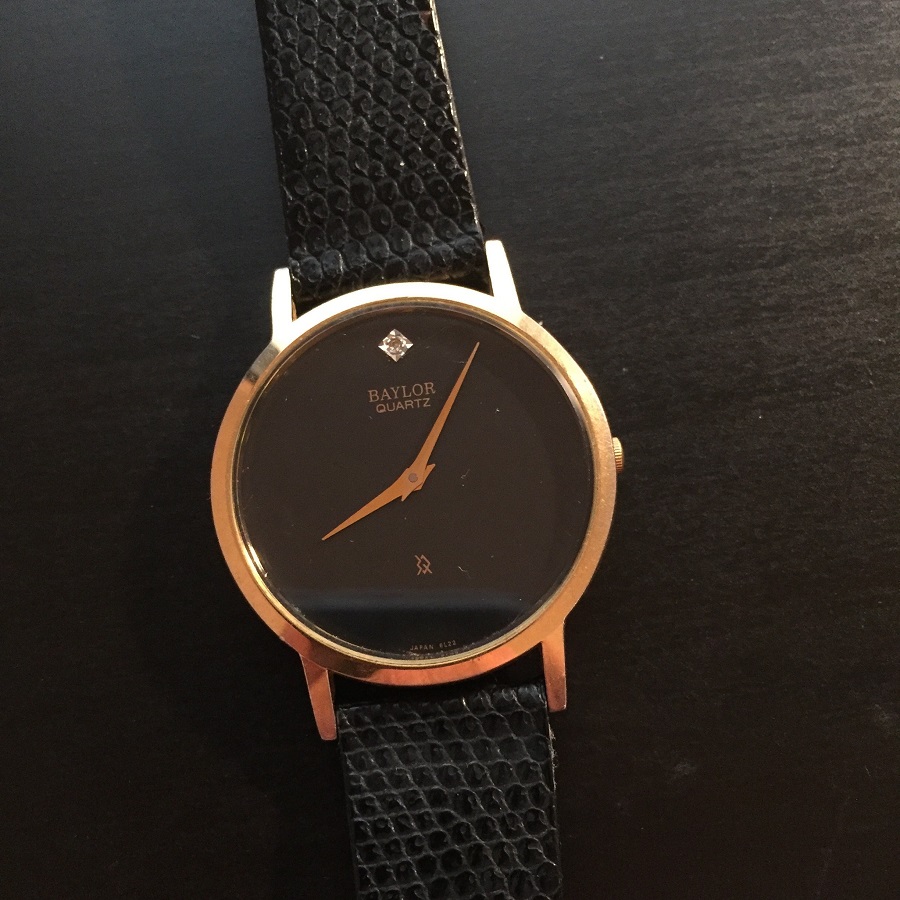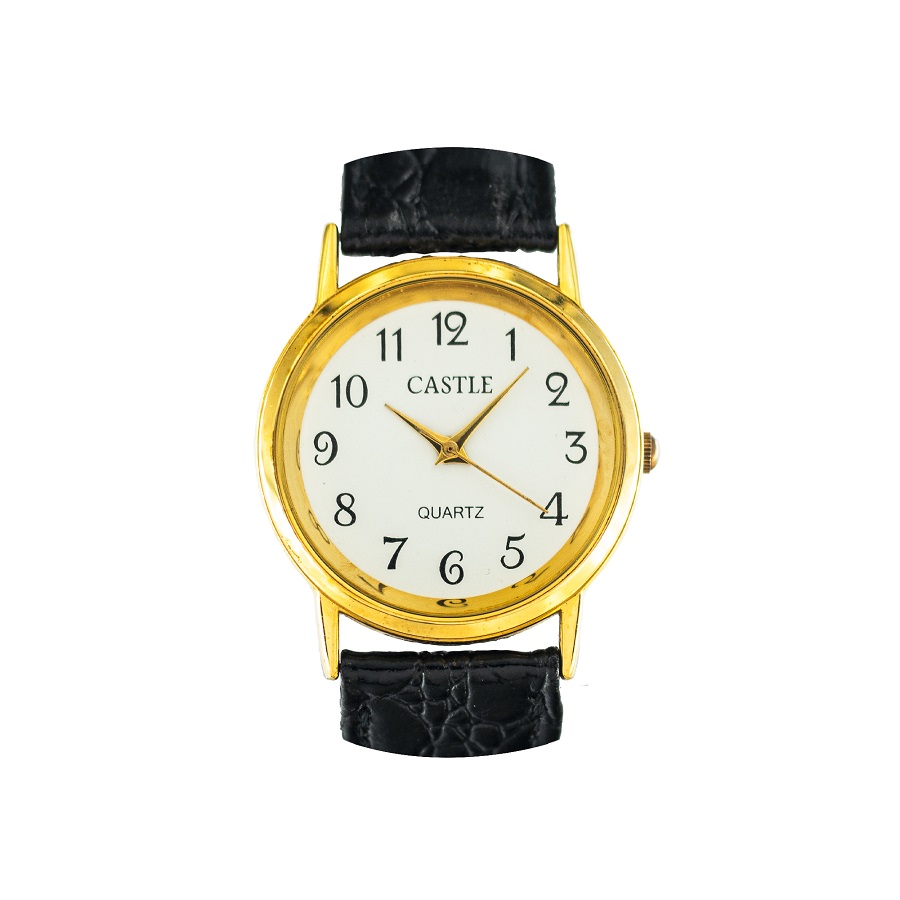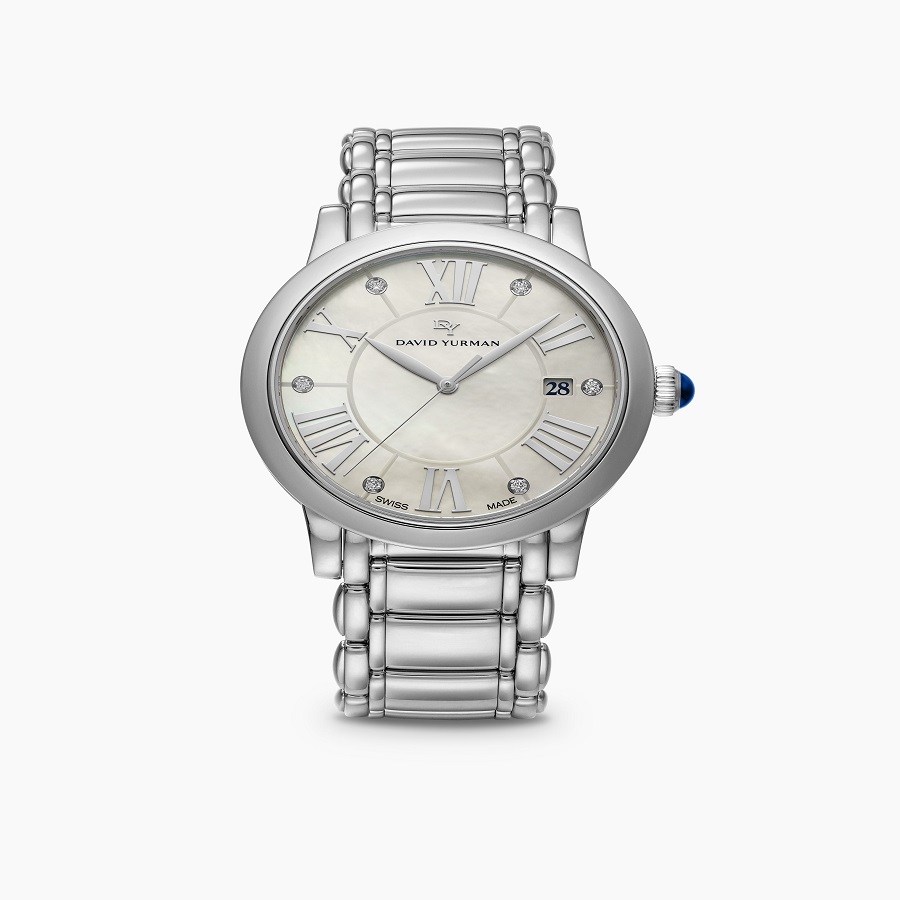Introduction to Quartz Watch Technology
When we talk about what quartz watch means, we refer to a timepiece that uses quartz crystal to keep time. The magic lies in the crystal’s ability to oscillate at a precise frequency when an electric charge stimulates it. In the heart of every quartz watch, the quartz crystal acts as the oscillator. Its rhythmic vibrations are the key to the accuracy of these watches.
The technology is not new. In fact, it revolutionizes watchmaking. Quartz watches first hit the market in the 1960s. Since then, they’ve become popular for their accuracy and reliability. Compared to mechanical watches, they offer a more accurate timekeeping solution with less maintenance.
Quartz watch technology is simple yet fascinating. It combines the piezoelectric properties of quartz with electronic circuits. This synergy creates a watch that can keep time with remarkable precision. Today, quartz watches are everywhere. They show up in everything from affordable everyday watches to luxury timepieces. Their widespread adoption speaks volumes about their value in our daily lives.
In the following sections, we’ll dive deeper into the workings of quartz watches. You’ll learn about the components that make them tick, and how they stack up against their mechanical counterparts. Understanding the advantage of quartz will guide you in choosing the right watch. Lastly, we’ll share some tips on taking care of your quartz watch, ensuring it serves you well for years to come.
 The History of Quartz Watches
The History of Quartz Watches
The journey of quartz watches began in the 1960s. During this period, engineers and scientists marked the birth of the first quartz wristwatch. This innovation was a breakthrough. It changed the perception of timekeeping around the world. The earlier watches relied on mechanical movement. These needed regular winding to maintain accuracy. Quartz technology introduced a new era.
The first commercial quartz watch hit the market in 1969. It was the result of intense research and development. This initial model set a high bar for reliability and precision. Its success sparked a revolution. Soon after, quartz watches soared in popularity. They became highly sought after, overshadowing traditional watches.
Throughout the 1970s and 1980s, the quartz watch industry saw rapid advancement. Prices dropped and designs improved. By the end of the 20th century, quartz watches dominated the market. They became the standard for timekeeping. Brands all over the world adopted this technology. Consumers loved the blend of accuracy, affordability, and low maintenance.
Today, quartz watches symbolize innovation in the watchmaking industry. They continue to evolve. Manufacturers are constantly enhancing the technology. Through this, they assure us of even greater accuracy and cutting-edge designs. The history of quartz watches is not just about past advancements. It tells us also of a commitment to the future. A future where time is kept with even more precision and style.
How Do Quartz Watches Work?
Quartz watches function in a unique and precise manner. The core component, a quartz crystal, is crucial. When powered by a battery, the crystal oscillates at a steady rate. This vibration is consistent and occurs 32,768 times per second. These oscillations are then counted by the watch’s circuit. The circuit processes these vibrations into regular electric pulses. One pulse occurs every second. This pulse powers the motor, which moves the watch hands. That’s how a quartz watch shows time.
Here’s a simplified breakdown:
- A battery sends power to the quartz crystal.
- The crystal vibrates at a steady frequency.
- The circuit counts the crystal’s vibrations.
- The circuit converts vibrations into electric pulses.
- Pulses drive the motor.
- The motor turns the watch hands, displaying time.
Each of these steps is vital to the precision of quartz watches. With such a reliable process, quartz watches provide accurate timekeeping. Their efficiency outperforms mechanical watches, which require complex gears and springs. This simplicity in design reduces the likelihood of errors. Hence, quartz watches rarely lose or gain seconds, keeping time accurately day after day.
The Components of a Quartz Watch
Understanding what quartz watch means involves not only knowing how they work but also recognizing the individual components that come together to create a precise and durable timepiece. Here are the critical parts that define a quartz watch:
Quartz Crystal
At the core is the quartz crystal, the centerpiece of a quartz watch’s functionality. This tiny slice of crystal is what oscillates under an electrical charge to provide the consistent beat that keeps time.
Battery
The battery is the power source that sends voltage to the quartz crystal, setting off the vibrations necessary for telling time.
Integrated Circuit
This electronic component counts the oscillations of the quartz crystal and translates them into regular electric pulses.
Stepping Motor
The pulses from the circuit prompt the stepping motor to move, which in turn drives the watch hands.
Watch Hands and Dial
These parts display the time to the wearer in a visual format, with the hands moving across the dial to indicate hours, minutes, and sometimes seconds.
Other Components
Additional elements such as the case, the crown, buttons, and the strap, while not directly involved in timekeeping, play crucial roles in protecting the internal parts and providing comfort and convenience to the user.
The synergy between these components is what allows quartz watches to deliver unparalleled accuracy. Each plays a distinct role, yet they work in harmony to create a watch that consistently measures time, day after day. By mastering the art of precision, quartz watches affirm their place on wrists around the world.
Quartz vs Mechanical Watches: A Comparison
When considering what does quartz watch mean, it’s essential to understand how they stand against mechanical watches. This comparison is key for watch enthusiasts and everyday users alike.
Precision and Accuracy
Quartz watches are highly accurate, hardly losing or gaining time. They operate on a battery, making them more consistent than mechanical watches. Mechanical watches, with intricate gears and springs, are more prone to slight inaccuracies.
Maintenance Needs
Quartz watches require minimal maintenance apart from battery changes. Mechanical watches need regular servicing to keep their complex movements in check.
Durability and Reliability
Thanks to fewer moving parts, quartz watches are generally more durable and reliable. Mechanical watches are more sensitive to the environment and rough use, which can affect their longevity.
Price Point
Quartz technology is often more affordable. It offers precise timekeeping without a hefty price tag. Mechanical watches, while offering craftsmanship and aesthetic value, tend to be more expensive.
Craftsmanship and Aesthetic Appeal
Mechanical watches are prized for their craftsmanship. Watch connoisseurs appreciate the intricate work that goes into their creation. However, quartz watches also come in sleek and high-end designs that are immensely attractive.
In conclusion, both quartz and mechanical watches have their own set of benefits that appeal to different preferences. Quartz watches excel in accuracy, maintenance, durability, and affordability, while mechanical watches attract those who value intricate craftsmanship and traditional watchmaking.
Advantages of Quartz Watches
Quartz timepieces offer unique benefits, making them a top choice for many watch wearers. Let’s look at some key advantages of these watches.
Unmatched Accuracy
The chief advantage of quartz watches is their precision. They lose very few seconds over time, ensuring reliable timekeeping. This is due to the consistent vibrations of the quartz crystal when powered by a battery.
Low Maintenance
Another perk is the low upkeep. Quartz watches typically need a battery swap every few years, but that’s about it. There’s no need for the regular servicing that mechanical watches demand.
Durability and Reliability
Quartz watches boast robustness. With fewer moving parts than their mechanical counterparts, they withstand everyday wear and tear better. They are less affected by external factors like temperature changes and impacts.
Versatility and Variety
From luxury brands to budget-friendly models, quartz watches come in a broad range of styles. They cater to all tastes and occasions, offering both functionality and fashion.
Affordability
A major attraction is affordability. They deliver accurate timekeeping and stylish designs at a fraction of the cost of mechanical watches.
Ease of Use
Lastly, their simple operation is a significant plus. Unlike mechanical watches that may require winding, quartz watches work seamlessly with just a battery. This makes them user-friendly, especially for those who value practicality.
Recognizing these advantages helps to appreciate what does quartz watch mean in terms of quality and practicality. Whether for personal use or as a gift, quartz watches provide a reliable option that meets various needs and preferences.
Care and Maintenance for Quartz Watches
Maintaining the pristine condition of a quartz watch is quite straightforward. It demands far less attention than mechanical watches, yet a few simple practices will extend its lifespan and maintain its accuracy.
Regular Battery Replacement
One of the most basic yet crucial maintenance steps is to replace the battery regularly. Quartz watches typically need a new battery every 1-2 years, although some may last longer. If the watch stops or starts losing time, it’s a clear sign the battery requires changing.
Keeping It Clean
Regularly clean your quartz watch with a soft, dry cloth. Wipe away dirt and fingerprints to keep it looking its best. Avoid using chemicals; even water, as they can damage the electronic components.
Avoiding Extremes
Keep the watch away from extreme temperatures and magnetic fields. These can affect the quartz crystal’s oscillation, thus affecting time accuracy.
Professional Servicing
Even though quartz watches need minimal maintenance, they can benefit from occasional professional servicing. This ensures that any worn-out components are replaced and the watch remains at peak performance.
Handling With Care
Treat the watch gently. Avoid dropping it or hitting it against hard surfaces. The internal components, although sturdy, are susceptible to shock and damage.
Proper Storage
When not in use, store the watch in a cool, dry place. A watch box or drawer lined with a soft fabric will protect it from scratches and dust.
Adhering to these care guidelines will ensure that your quartz watch continues to provide accurate and reliable timekeeping for years. Remember, a little care goes a long way when it comes to these sophisticated timepieces.
The Future of Quartz Watch Technology
As we look ahead, the future of quartz watch technology seems bright. This predictable and sophisticated timekeeping method is continually evolving. Manufacturers are pushing the boundaries further, leading to more refined, stylish, and smart quartz watches. Here are potential advancements we can expect:
Increased Precision
Although quartz watches are already incredibly precise, efforts to increase accuracy continue. Scientists and engineers aim for even more exact oscillation rates of the quartz crystal.
Enhanced Power Efficiency
Longer battery life and more efficient power consumption are top priorities. There could be innovations in battery technology or alternative power sources, like solar charging.
Integration with Smart Technology
Quartz watches might integrate smart features, like health tracking or connectivity with smartphones. This would marry traditional timekeeping with the convenience of modern tech.
Sustainable Materials
A move toward sustainability may influence the materials used in making quartz watches. We can expect eco-friendly materials to be favored for both the exterior and internal components.
Design Innovations
As trends change, so will the designs of quartz watches. Future styles may reflect contemporary aesthetics, with slim profiles, minimalist faces, and new kinds of straps.
Predicting exactly what the future holds is challenging. However, one thing remains certain: the demand for precise, reliable, and accessible timepieces will drive quartz watch technology to new heights. The term ‘what does quartz watch mean’ will evolve as the technology does, ensuring that quartz watches stay relevant and desirable in the market.

